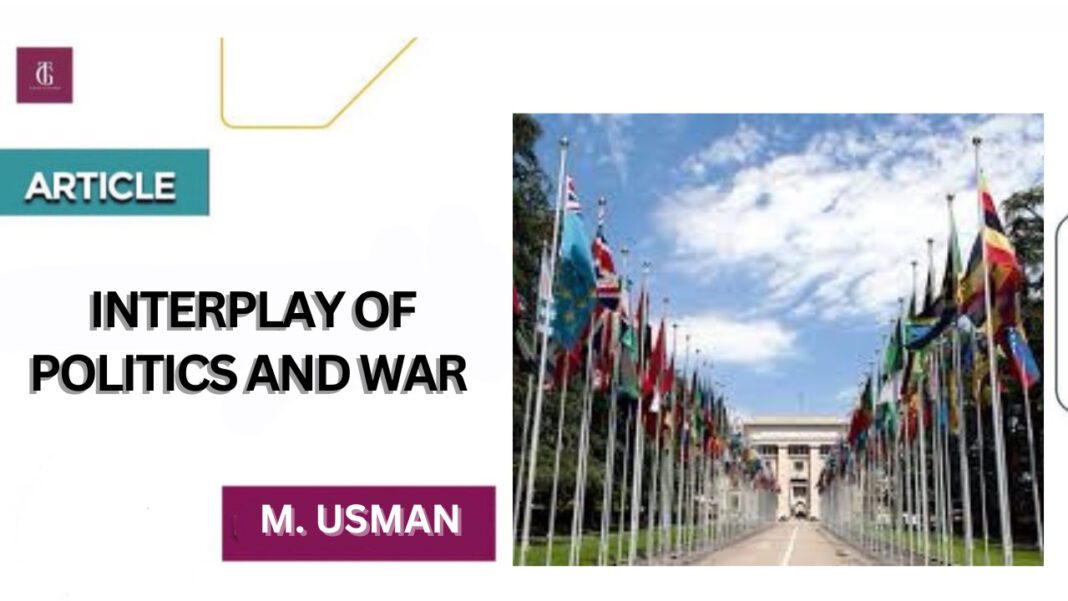Although we have won numerous battles, the war is not yet over. In contrast to politics and those who conduct it, the military strategy for winning the war is to wrap and close options. They try to balance competing concerns, keep options open, unwrap and present all options for political discussions, and work in all directions while seeking a quick solution that will be politically rewarding.
Tragically, the issue with the sporadic conflict that this nation has been battling for quite a while is that, throughout the long term, it has failed to stay an expansion of governmental issues. As a result, the war has generated its military momentum because military operations have driven the policy rather than served it. Before General Raheel Sharif decided to launch it in June 2014, there had been no North Waziristan operation. There was no apparent reasonable, steady, and direct interpretation of common military inclinations into military plans and activity — until the Military State-funded School Peshawar occurrence of December 2014 constrained the political heart of an enraptured political framework to surrender to the chance of a joint sitting to draft and support a public activity plan. Still, the military is doing everything possible to prevent internal and external circumstances and pressures from subverting the very purpose for which this war is being fought, despite the current political chaos and “attention-diverting political activities.”
As a student of the art and science of war, it is not difficult to deduce that the irregular war that our military fights today is not a political pawn. Rather than reaching out to the military to introduce and devise a joint strategic framework to secure the nation-state, its citizens, its economy, and even its institutions, politicians most frequently adapt to securing and enlarging their political positions, political space, and political power each time they come to power. This is not because it cannot or will not be done, but rather because the generals have fought and mastered it for a long time.
If interruption signifies ‘putting oneself purposely into a spot or circumstance where one is unwanted and excluded,’ then, at that point, the inquiry that we should pose to the present time is who has meddled whom? — Politics and war or politics and war? The regular citizen’s command over the military is glorified; however, assuming conflict is grasped in the language of the well-known military scholar Carl Von Clausewitz ‘as a political demonstration,’ then, at that point, it’s not the regular citizen yet the political command over the tactical that ends battle into a political demonstration. Not the “civilian,” but the all-encompassing “democratic political control” that should make strategic decisions for a nation, including those about the war’s political goals. The nation’s irregular war also suffers if democracy is undermined. Pakistan’s parliament will only be able to exercise “democratic political control” over the military if its members serve their consciences as much as they serve the dictates of their political parties, as was recently challenged and reprimanded by a strong candidate (Imran Khan) for the position of prime minister in 2018.
In today’s instant media, civil and military leadership appears to be more likely to use selective leaks to advance or derail each other’s concerns. The Dawn Leaks have recently been the most well-known in the civil and military context. These leaks are nothing more than ploys meant to serve the interests of either the civilian or military community. They are designed to elicit favorable responses from either group. The political motivation is the public disclosure and revelation of any military attempts to get involved in politics. Any leaks by the military would be used to reluctantly highlight any civilian decision deemed “dangerous” for national security as a last resort. Even though, from the perspective of the military and the Pakistan Military Academy’s Ingall Hall motto, “honor, duty, and country,” the decision facing any military leader should be straightforward: either live with the civilian decision and carry it out (which is not a popular choice) or publicly resign and state the reasons in the resignation letter if the decision is bad (dangerous) for our national security. Working the system by using leaks to put political pressure on civilians to change a decision is not the military way. The military teaches its officers right from the start in the military academy to keep their honor and the honor of their institution wrinkle-free, in addition to keeping their uniforms clean.
Curiously, today, armed forces prepared to battle regular fighting are moving to execute increasingly more counterinsurgency, counterterrorism, and country-building tasks. This shift rules out commanders to make themselves legends like Patton and McArthur. As a result of this shift, the battlefield is diminished and restricted to inward limits. Hence, it’s not the enormous military tasks at fantastic scope but rather little strategic fights setup that will decide the result of this conflict. In this military scenario, the military’s visible physical space is important, but the political leadership must occupy the larger political space through political control, politics, and executive power. For legislators to accomplish this tactical activity, trucks should not be tied in front of the political pony.
Tragically, a country battling an existential conflict has too diminished political support in the war zone to direct the war’s course. War references must be discussed at the negotiation table. Before resulting in military actions on the battlefield. The military will continue to win military battles if politics (policy) does not control military plans. However, the military will not be able to estimate the final point of victory or figure out how to get out of this war by devising an exit strategy in this irregular war, which is still the realm of politics.
Last but not least, when contrasting the three-year tenure of the military commander with the permanent presence of political leadership, our former president, Asif Zardari, famously stated, “We are here to stay; you are here only for three years.” Now that one gander at the ongoing world of politics in the country according to the tactical viewpoint, the military is more than happy that the Constitution of Pakistan guarantees that the political authority is perhaps turned over like clockwork at the chief level through the course of races. Parliament, like the military, is an institution that stays the same; the people who hold parliamentary seats are likely to change. Perhaps it will alter the political rather than military ownership of the war.

Haider Ali
Student of politics and International Relations at Quaid e Azam university islamabad.






